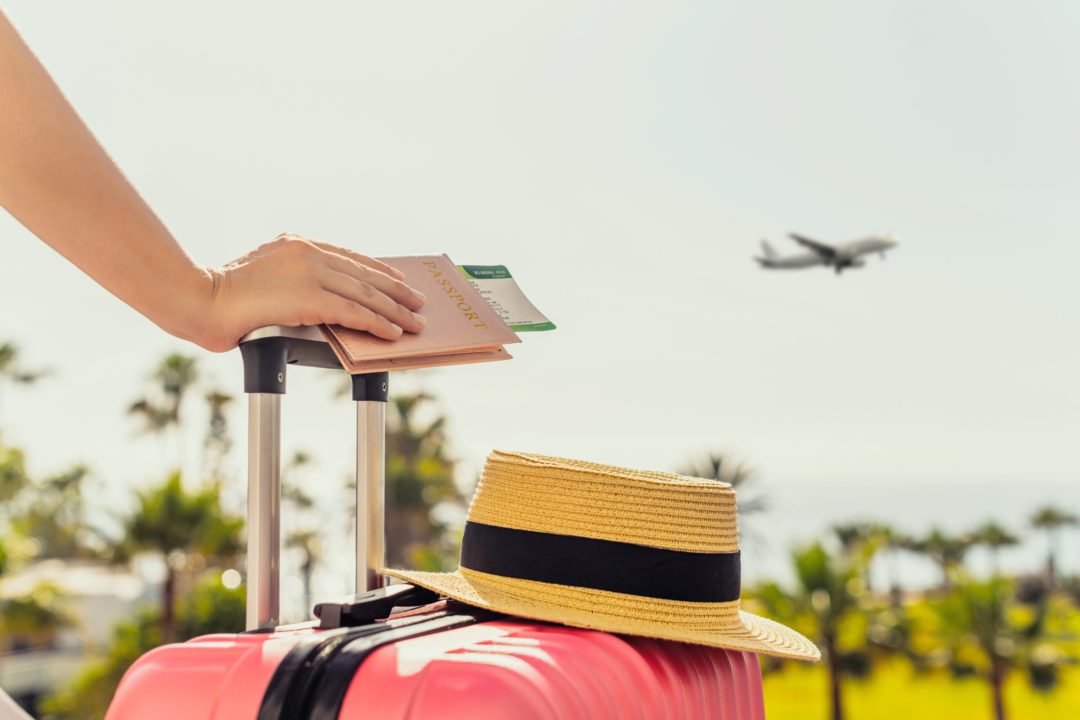
WholeFoods Magazine
How To Travel and Stay Healthy: The Basics

After years of being grounded, and almost literally stuck in our homes, we are back on the road and traveling far and wide. Now more than ever, we are also aware of our need to stay healthy whether we’re traveling the globe or enjoying a staycation.
Preparing to Launch
The best approach to staying healthy while traveling is to make sure you are going into your trip with a strong foundation of health. Start incorporating healthy habits far in advance and ideally, throughout your life. Life is a journey after all!
Sleep
One of the best ways to support overall health is getting a good night’s sleep, but millions of Americans experience sleep disturbances every night (and that’s when we’re in the comfort of our own beds!). As many of us know, life on the road can mean one sleepless night after another as we deal with new beds, wonky pillows, and unfamiliar nighttime noises.
Try traveling with a sleep mask. These really come in handy when you’re in a hotel room with streetlights or indoor electronic devices emitting light into an otherwise-dark room. Or, if you’re on a long flight, slip that mask on, pop on some noise-canceling headphones and expect to arrive more refreshed than most of your flight-mates.
Traveling to new time zones can be another challenge to sleeping well. Try adjusting to the new time zone a couple of days before you depart. And travel with melatonin if you need additional support adjusting to your new hours.
Melatonin is a hormone produced by the pineal gland located in the center of the brain. Internal melatonin production naturally increases when the sun goes down and nighttime emerges. Elevated melatonin production continues throughout the night, then melatonin production slows as the sun rises.
One of melatonin’s functions is to help make us feel sleepy and help us sleep through the night. If this is a choice you want to try, one to two milligrams of melatonin generally is a good place to start.
Hydration
Staying adequately hydrated while traveling can be a challenge. It is difficult if you are getting on and off planes, trains, and buses to drink enough water...and if you do, finding a place to alleviate yourself can be nearly impossible at times. But all the effort is worth it! Hydration is key to a healthy immune system, energy, and elimination.
Adding electrolytes to your water can help support hydration, as well as nervous system and muscle function. Electrolytes contain nutrients like magnesium, potassium and bicarbonate working synergistically to help regulate chemical reactions and cellular hydration. Packets of powdered electrolytes are an easy choice for traveling road warriors.
Nutrition
Although the food, once you get there, is going to be great, life on the road can be anything but nutritious. Airport hotels, plane food, long stretches of road where not a rest stop is seen for miles and miles...you are going to want snacks, and especially snacks that are nutrient dense.
Of course, organic nuts, cheeses, fresh and dried fruits like apples and prunes are all good choices. And to really ramp up nutrient values, superfoods like spirulina and chlorella are great options, especially for those times when consuming fresh fruits and vegetables is sparse.
Gut Health
If we’re talking about traveling, we must talk about bacteria. The good and the bad. Traveling to new regions means exposure to a variety of bacteria our bodies are unfamiliar with, and gastrointestinal issues may arise. Consider taking probiotics and eating probiotic-rich foods like sauerkraut and yoghurt before departing, as well as during your trip to keep your gut healthy.
Stress Relief
Lastly, let’s talk about stress. Let’s face it, as much fun as travel can be, it can also be stressful. Not only do stressful situations effect our level of enjoyment, but stress also directly effects gut and immune health. Getting a handle on our stress response is one of the best ways to enjoy the journey.
Travel with essential oils like chamomile, clary sage or lavender. Even if you don’t apply the oil to your skin, (which honestly shouldn’t be done if you’re traveling in cramped quarters like a plane or train), simply opening the jar, and inhaling imparts a calming effect.
Taking adaptogens weeks or even months in advance can also support a balanced stress response. Simply put, adaptogens are botanicals which help us adapt to stress, (and what could be better than that?!). Ashwagandha (Withania somnifera), rhodiola (Rhodiola rosea) and holy basil (Ocimum tenuiflorum) are great options to incorporate.








